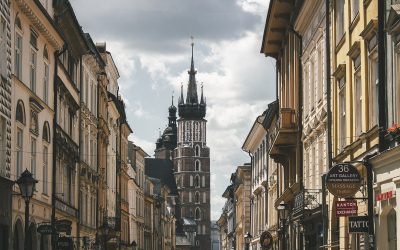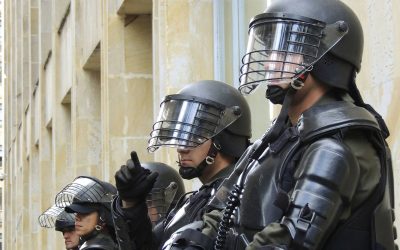Уряди можуть прагнути здійснювати суворий контроль над громадянським суспільством, активістами, журналістами та іншими особами, які висвітлюють питання прав людини, пов’язані з підприємницькою діяльністю. Ризики, пов’язані з урядовим пригніченням і репресіями, ще вищі, коли уряд, могутні політики, олігархи та/або політичні донори володіють або мають значну частку в бізнесі, про який йде мова.
Пригноблення, державний контроль та авторитаризм можуть зменшити простір для роботи громадянського суспільства з питань бізнесу та прав людини. Напади на правозахисників часто є більш поширеними в цих середовищах. У всьому світі під час пандемії Covid-19 посилилися репресії проти правозахисників, які займаються питаннями, пов’язаними з бізнесом.
У Східній Європі та Центральній Азії уряди інколи вживали жорстких заходів проти правозахисників, протестувальників, активістів і страйкуючих робітників. Робітники були в авангарді протестів у Білорусі і зіткнулися з серйозною реакцією за свою активність.
Профспілки також можуть бути мішенню, особливо коли вони виступають проти державних підприємств. Під час страйку в Жанаозені (Zhanaozen) у 2011 році казахстанська поліція відкрила вогонь по страйкуючих нафтовиках, в результаті чого загинули 64 людини і 400 отримали поранення. Однак казахстанська влада стверджує, що смертельних випадків було набагато менше, всього 15. Протягом наступних місяців державна влада катувала страйкуючих робітників і представників профспілок; в результаті Комітет ООН проти катувань визнав Казахстан винним у порушенні статті 15 Конвенції проти катувань та інших жорстоких, нелюдських або таких, що принижують гідність, видів поводження і покарання. Невдовзі після цього Казахстан ввів ще жорсткіші обмеження для незалежних профспілок.










